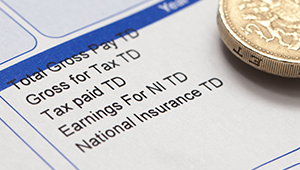Our first disagreement with the government on the deficit is timing. Cutting spending too soon and too quickly risks the double-dip that could kill the patient.
But even when recovery is secure, there is a big debate to be had about the best ways of mending the public finances. Policies that encourage growth will be the most effective as that is the quickest way to increase the tax take. We already have the evidence that the deficit has turned out to be £6bn less than expected this year.
The coalition's failure to find even £6bn worth of cuts from efficiency savings and back-room services that fail to harm the front line or bear down on the poor, vulnerable and jobless will put pressure on ministers to look to tax to take more of the strain.
Leaks suggest that VAT increases are their favoured option. But this is about the least progressive tax option.
Increasing VAT in the budget will hit the poor more than the rich, have more impact on small firms than big ones, threaten retail jobs, increase tax avoidance and boost inflation – risking a mortgage-threatening rise in interest rates – according to a new Trades Union Congress briefing at www.tuc.org.uk/VAT
The poorest fifth of households pay 12p in VAT for every pound they spend of their disposable income, while the top fifth of earners pay just 6p.
This is one reason why VAT income has not kept up with economic growth and has declined in importance as a source of government funds over the past decade. VAT provided 16% of tax income in 2004 but has fallen since even before the credit crunch. While average earnings have grown it is the better off who have done best. While the poor spend a high proportion of their income on VAT-able goods and services, the rich don't.
Most people think of VAT-exempt items as ones that help the poor ,such as food and children's clothes, but the better off do not have to pay VAT on financial services, private health or private education. And, of course, the rich save, the poor can rarely afford to.
Nor does VAT hit all businesses equally. Only businesses with sales of more than £70,000 a year have to register for VAT. Unregistered small firms pay VAT without being able to claim it back.
Many large companies are avoiding VAT by setting up subsidiaries in the tax havens such as the Channel Islands to sell items that cost less than £18 – such as CDs and DVDs – as these can be imported into the UK free of VAT.
This already costs UK taxpayers £100m a year. Increasing VAT would provide further incentives to operate in tax havens and thus would threaten retail jobs in the UK.
Higher VAT rates would feed directly through to the inflation figures – already over target. The risk is that the Bank of England would increase interest rates as a result, which would feed through into higher borrowing costs for companies and bigger mortgage bills for consumers.
The chancellor should resist the temptation to be VATman when he presents his budget.
There are much fairer ways to raise taxes, such as a Robin Hood tax on financial transactions and capital gains tax. The only VAT changes he should contemplate are ending the zero-rates on the private health and education that only the rich can afford.
Brendan Barber is the general secretary of the Trades Union Congress











